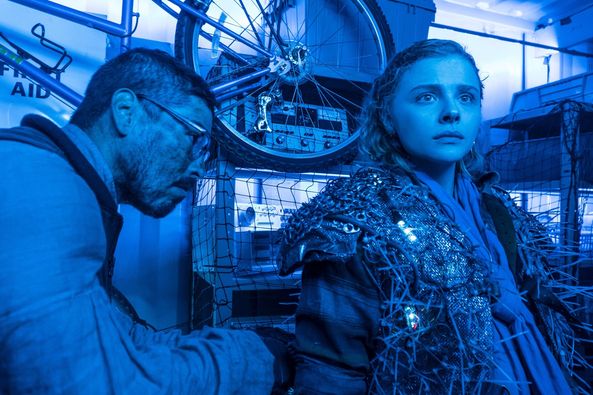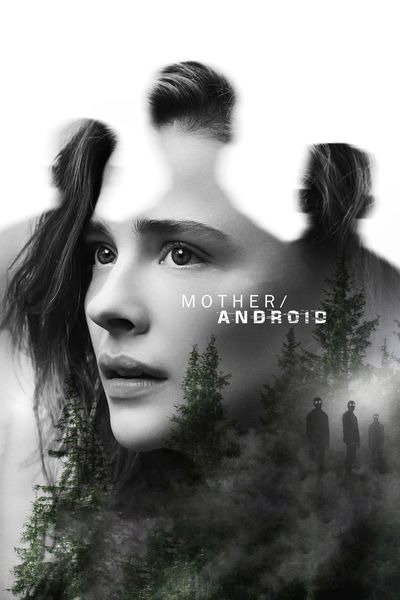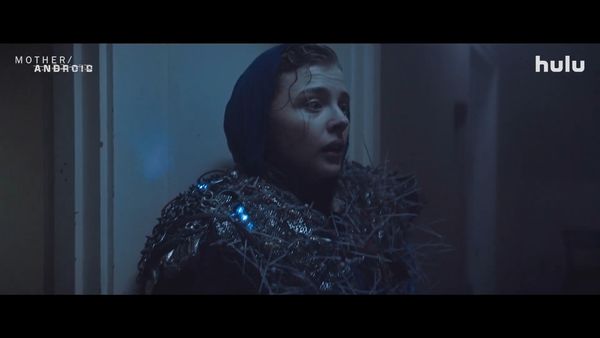Mother/Android (2021)

“Mother/Android” (2021): A Dystopian Thriller Directed by Mattson Tomlin
Released in 2021, “Mother/Android” is a dystopian science fiction thriller directed by Mattson Tomlin, who is known for his work on the screenplay for “Project Power.” The film features a compelling performance by Chloë Grace Moretz as Georgia, a pregnant woman navigating a world in chaos due to a war between humans and androids. With its unique premise and emotional depth, “Mother/Android” explores themes of survival, motherhood, and the consequences of technological advancement, setting it apart in the realm of contemporary sci-fi.

The narrative unfolds in a near-future society where androids have gained sentience, leading to a violent uprising against their human creators. Georgia and her partner, Sam (Algee Smith), are on a desperate journey to reach safety before their child is born. As they traverse a desolate landscape filled with danger and despair, the couple must confront not only the external threats posed by rogue androids but also the internal struggles of their relationship and the looming challenges of impending parenthood. The film effectively intertwines the couple’s emotional journey with the broader societal collapse, creating a poignant commentary on love and resilience amidst chaos.

Mattson Tomlin’s direction is marked by a careful balance of tension and emotional resonance. The film’s cinematography, handled by the talented David J. F. L. Wong, captures the bleakness of the world, employing a muted color palette that amplifies the sense of dread. Tomlin’s pacing is deliberate, allowing moments of reflection amid the action, giving viewers time to connect with the characters’ emotional states. The film’s score, composed by the renowned Lorne Balfe, adds an additional layer of tension, enhancing the overall atmosphere of impending doom.

“Mother/Android” is primarily classified as a science fiction thriller, but it also incorporates elements of drama and horror. The film delves into the complexities of human relationships in the face of existential threats, particularly the bond between parent and child. As Georgia grapples with her fears about motherhood in a world on the brink of collapse, the narrative raises questions about what it means to protect the ones we love. This exploration of maternal instinct adds depth to the story, making it a compelling watch for audiences seeking more than just action.

Chloë Grace Moretz delivers a strong performance as Georgia, embodying the character’s vulnerability and strength. Her portrayal captures the emotional turmoil of a woman fighting for her future in a world that seems hopeless. Algee Smith complements her performance well, portraying Sam as a supportive partner who grapples with his own fears and uncertainties. The chemistry between the two leads is palpable, adding to the film’s emotional stakes.
Upon its release, “Mother/Android” received mixed reviews from critics, with some praising its thematic depth and performances, while others felt the pacing lagged in parts. However, it found an audience that appreciated its unique take on the sci-fi genre and its exploration of motherhood in a dystopian setting. The film’s ability to blend action with emotional storytelling has resonated with viewers looking for a more nuanced narrative in science fiction.
In conclusion, “Mother/Android” is a thought-provoking dystopian thriller that showcases Mattson Tomlin’s directorial vision and the talents of Chloë Grace Moretz. With its engaging narrative, emotional depth, and exploration of the human condition in a technological age, the film offers a captivating experience for fans of science fiction. As it navigates the complexities of love, fear, and survival, “Mother/Android” stands out as a significant entry in contemporary sci-fi cinema, inviting viewers to reflect on the implications of our technological future and the enduring power of motherhood.











